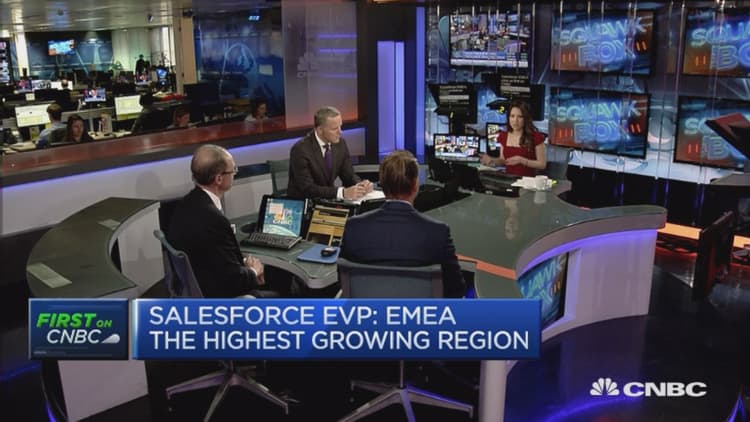The wealth of information on the internet has made us less curious about the physical world, the CEO of British start-up Blippar told CNBC, adding that its app is designed to reignite interaction with the world that surrounds us.
Blippar founder Ambarish Mitra told CNBC at RISE 2016, a technology conference in Hong Kong, that the company was trying to provide real-time information on everything - from cereal brands and cars to even rapper Snoop Dog.
"The worldwide web is an isolated window, which happens to be on your phone, or on your computer and you sometimes access it with questions and answers," he said. "[But] the world at arm's length remains undiscovered and unexplained."
That's where Blippar – or the act of 'Blipping' – came in. Users point their smartphone cameras at an object or its identification code and the app, powered by artificial intelligence, would recognize and provide information about the product. For example, if users pointed at a coffee mug, Blippar's app would tell them about the nearest coffee shops or the closest store to buy a new set from.
Blippar said, there were around 12 billion "blippable" product codes from more than 1,000 brands, including legacy names such as Procter & Gamble, Unilever and Pepsi.
Key to reigniting human curiosity in the physical world were education and literacy, according to Mitra. It involved teaching people – particularly the large number of users who were coming online in the developing world – the right kind of decision-making skills.

"How can a person be equipped such that he knows to satisfy one curiosity, he reads the book? For another, he turns to Google?" Mitra explained. "People don't even have that level of awareness."
Blippar worked with about 67,000 schools worldwide to create interactive information features about objects on the app. Mitra said there was also an emphasis to brands, agencies and publishers – who advertise their products on the app – to make their features more interactive and educational.
"It's sort of an untapped market. Most of them think TV is media, outdoor is media, but they don't realize their products are the biggest media in the world."







